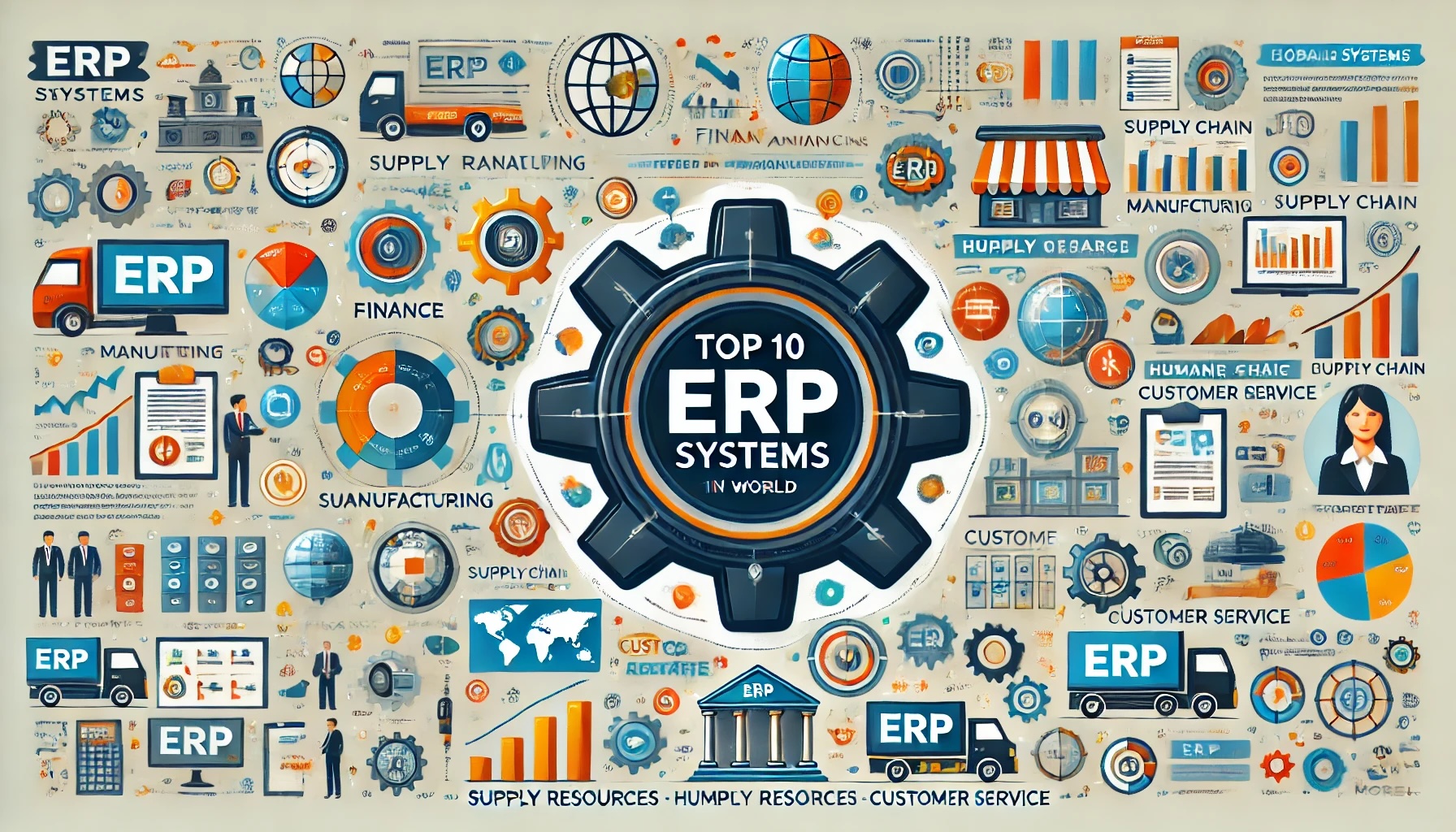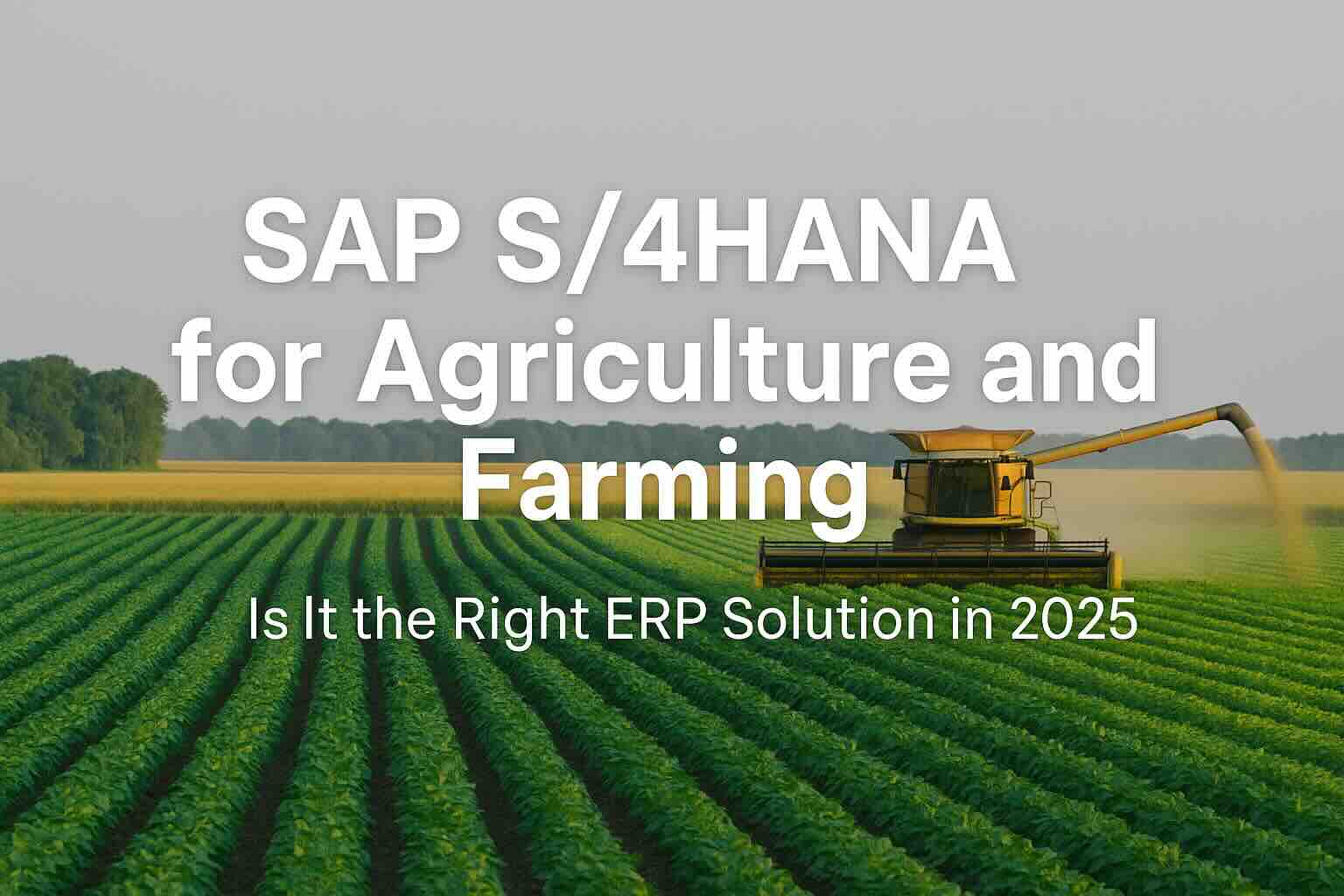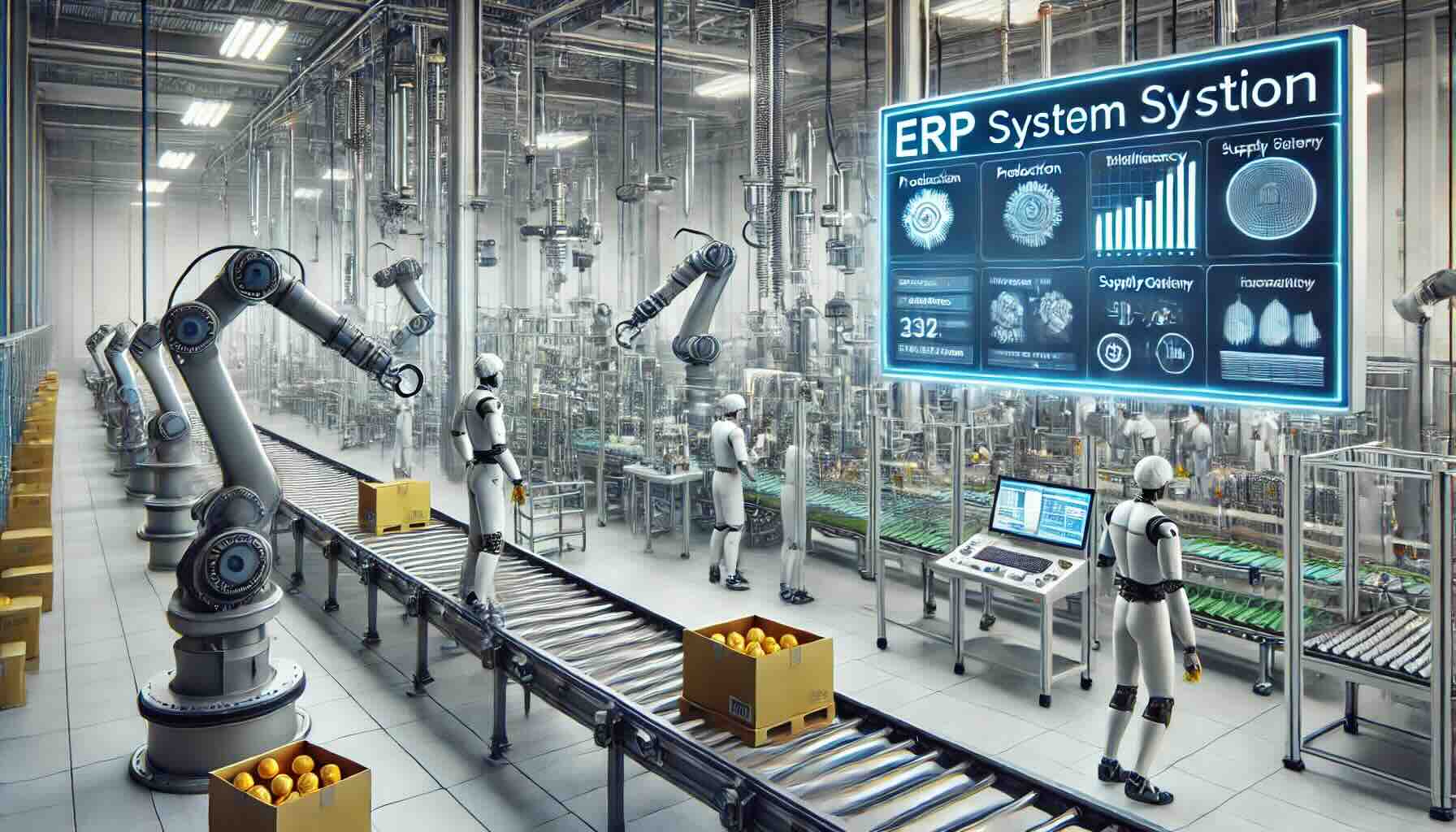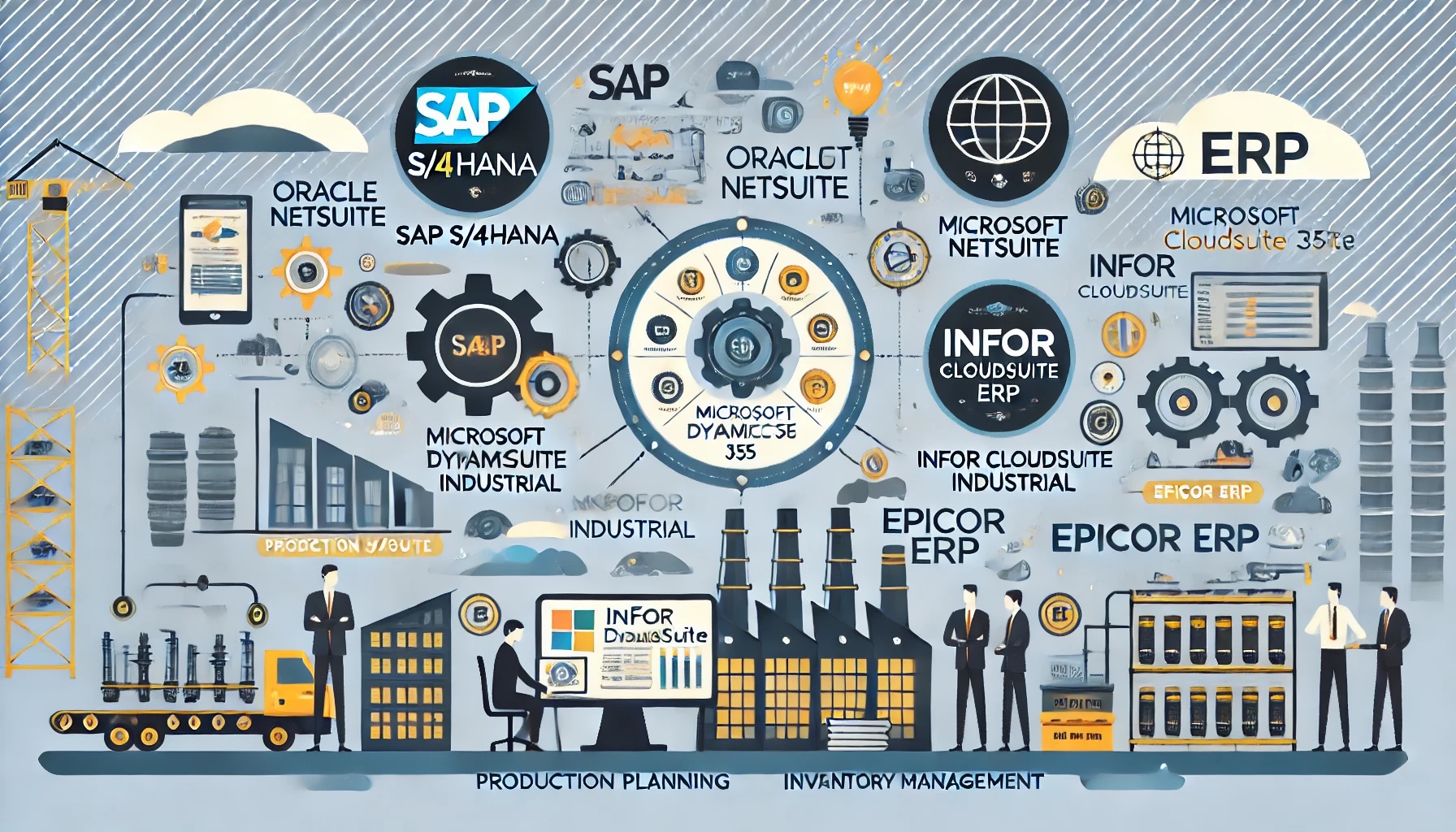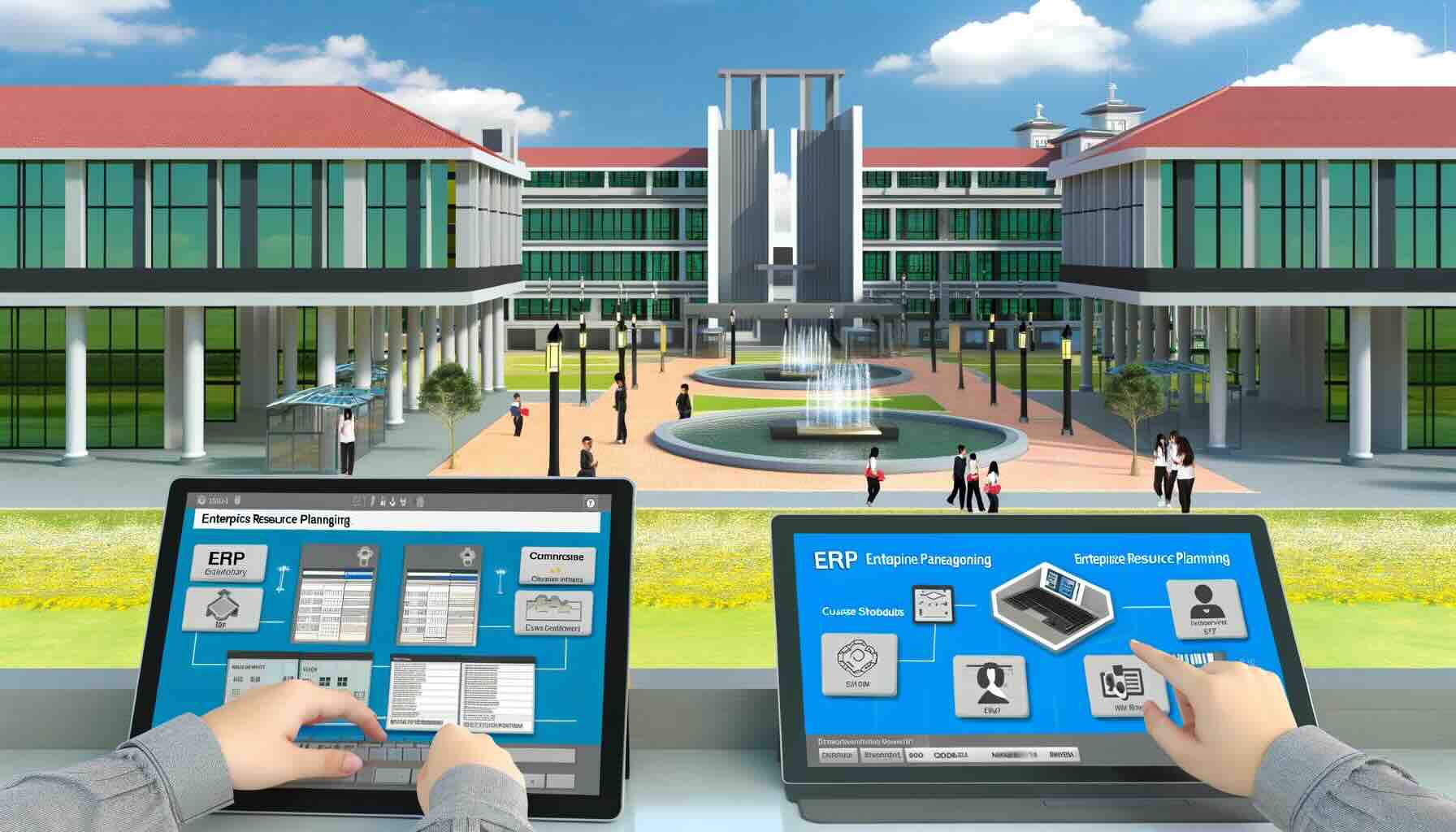ERP Systems for Agriculture and Farming
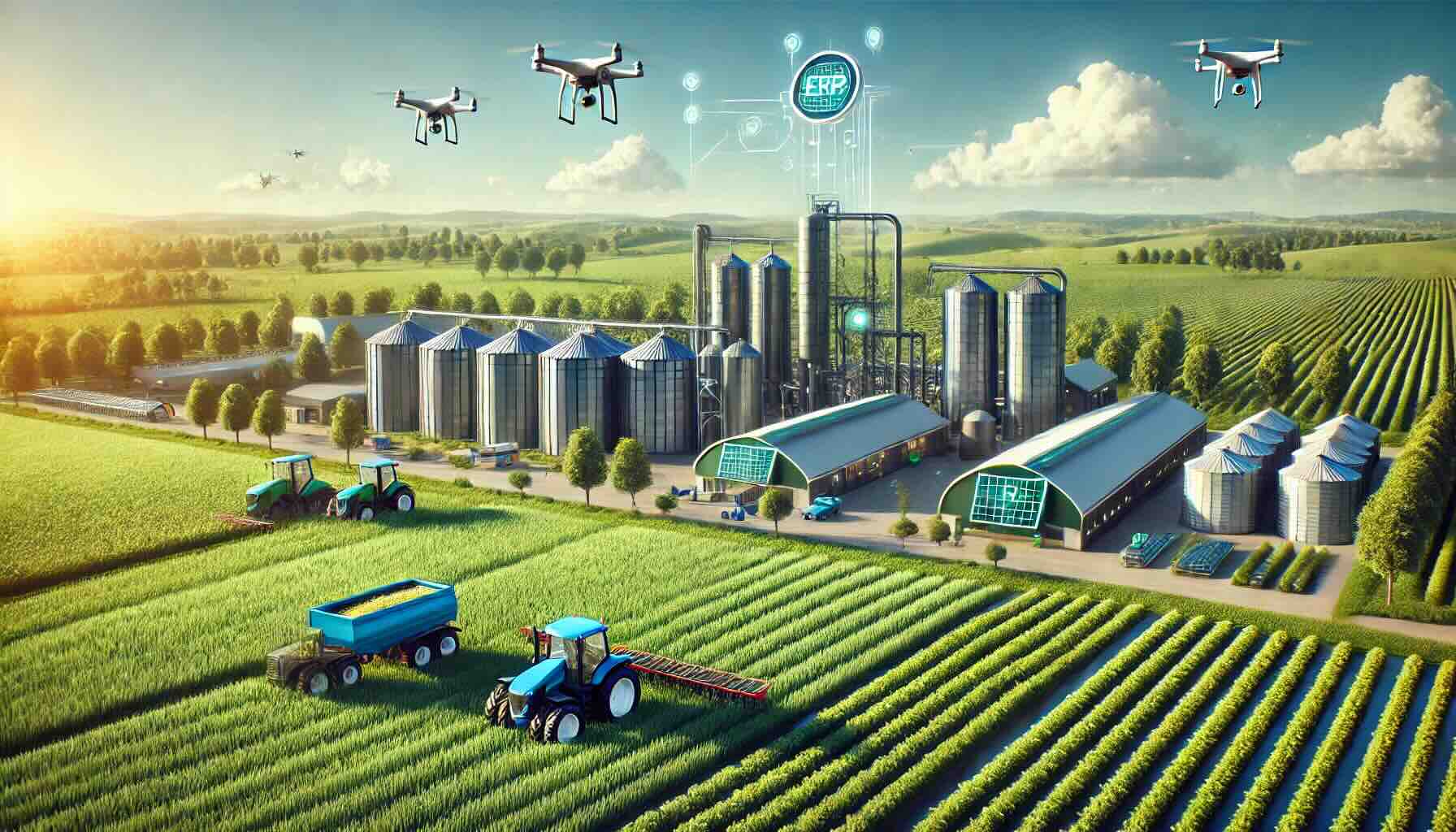
The agricultural sector is increasingly turning to technology to address challenges such as resource management, crop optimization, and supply chain efficiency. ERP systems for agriculture and farming have become essential tools, helping farmers integrate and streamline various processes into a unified platform. These systems empower modern farms to make data-driven decisions, minimize costs, and improve productivity.
In this blog, we’ll explore how ERP systems are transforming agriculture and highlight five leading solutions that are best suited for the industry.
What Are ERP Systems for Agriculture and Farming?
ERP (Enterprise Resource Planning) systems are comprehensive software solutions designed to integrate all aspects of farm operations—crop planning, inventory tracking, financial management, and labor scheduling—into one centralized platform. By providing real-time visibility into operations, ERP systems enable farmers and agribusinesses to optimize resources, reduce inefficiencies, and make strategic decisions.
Top ERP Solutions for Agriculture and Farming
With a variety of ERP systems available, choosing the right one can seem daunting. Here are five leading ERP solutions that cater to the unique needs of agriculture and farming operations:
Microsoft Dynamics 365
Microsoft Dynamics 365 is a robust and scalable ERP solution that integrates seamlessly with other Microsoft products. It offers real-time data analysis, allowing farmers to optimize operations like crop planning, financial tracking, and inventory management.
Why It Stands Out: Its flexibility and scalability make it suitable for farms of all sizes. The system’s ability to provide deep insights through tools like Power BI helps farmers improve decision-making.
Pros:
- User-friendly interface and strong analytics tools.
- Seamless integration with Microsoft applications.
Cons:
- Customization can be costly and complex.
- Requires training for new users.
To find out more about Microsoft Dynamics you can visit this link.
SAP Business One
SAP Business One is a leading ERP solution known for its ability to streamline farm management. It covers everything from inventory control to financial accounting, helping farmers track resources and maintain compliance with agricultural standards.
Why It Stands Out: Its strong traceability features allow farms to monitor their processes from planting to post-harvest, ensuring transparency and quality.
Pros:
- Robust financial management tools.
- Excellent traceability and regulatory compliance features.
Cons:
- Can be expensive for smaller farms.
- Steeper learning curve due to extensive features.
To find out more about SAP Business One you can visit this link.
Infor M3
Infor M3 is designed for farms that rely heavily on machinery, labor, and large-scale production. It excels in managing assets, scheduling maintenance, and optimizing inventory, making it ideal for machinery-intensive operations.
Why It Stands Out: The ERP’s real-time analytics and asset management tools ensure farms can monitor and optimize resource usage effectively.
Pros:
- Strong asset and equipment management capabilities.
- Real-time data analytics for better decision-making.
Cons:
- Limited out-of-the-box features for smaller operations.
- Customizations can increase costs and implementation time.
To find out more about Infor you can visit this link.
Oracle NetSuite
Oracle NetSuite is a cloud-based ERP solution perfect for farms that require complex supply chain and inventory management. It streamlines processes like procurement, order fulfillment, and financial reporting, offering real-time insights into farm operations.
Why It Stands Out: Its scalability makes it ideal for growing farms that need to manage evolving business demands efficiently.
Pros:
- Strong supply chain and inventory management tools.
- Scalable and customizable for growing farms.
Cons:
- Higher subscription costs may not suit small farms.
- Requires technical expertise for setup and customization.
To find out more about NetSuite you can visit this link.
Epicor ERP
Epicor ERP focuses on improving farm efficiency with tools for demand forecasting, resource management, and compliance tracking. It helps farms optimize seasonal demands, manage inventory fluctuations, and streamline financial planning.
Why It Stands Out: Its strong demand forecasting capabilities allow farms to plan for seasonal changes and improve resource allocation.
Pros:
- Excellent tools for demand forecasting and resource optimization.
- Ensures compliance with agricultural standards.
Cons:
- Implementation may take longer due to system complexity.
- The interface may not be as intuitive as other solutions.
To find out more about Epicor you can visit this link.
Benefits of ERP Systems for Agriculture
Implementing an ERP system offers numerous advantages that help farms increase profitability and efficiency:
- Improved Resource Management: Track and manage inputs like seeds, fertilizers, and labor effectively.
- Streamlined Operations: Integrate processes such as crop planning, inventory control, and financial management into one platform.
- Data-Driven Decisions: Gain real-time insights into farm performance through analytics and reporting tools.
- Cost Reduction: Minimize resource wastage and reduce overall operating costs.
- Enhanced Supply Chain Management: Improve transparency and ensure timely delivery of produce to markets.
How to Choose the Right ERP Solution for Your Farm
When choosing an ERP system for agriculture, consider the following factors:
- Scalability: Ensure the solution grows with your business.
- Ease of Use: Look for systems with intuitive interfaces and training support.
- Features: Identify the features most critical to your farm’s operations (e.g., crop management, asset tracking, financial reporting).
- Budget: Evaluate costs, including implementation, subscription, and customization fees.
- Support: Choose vendors that offer strong customer support and post-implementation assistance.
Final Thoughts
ERP systems are transforming modern agriculture by automating processes, optimizing resource usage, and delivering actionable insights. Solutions like Microsoft Dynamics 365, SAP Business One, Infor M3, Oracle NetSuite, and Epicor ERP stand out for their ability to meet the diverse challenges faced by farmers and agribusinesses today.
By implementing a robust ERP system, farms can achieve higher productivity, reduce operating costs, and streamline their operations for sustainable growth.
Ready to Transform Your Business?
Implementing the right ERP system could be the game-changer your business needs. With our AI-powered Compare ERP tool, you can effortlessly explore and compare solutions tailored to your unique business needs. It’s free to use, and you’ll receive a guaranteed discount on your first year’s license fees with a referral from Compare ERP. Take the first step toward streamlining your processes and boosting productivity and start comparing today!

